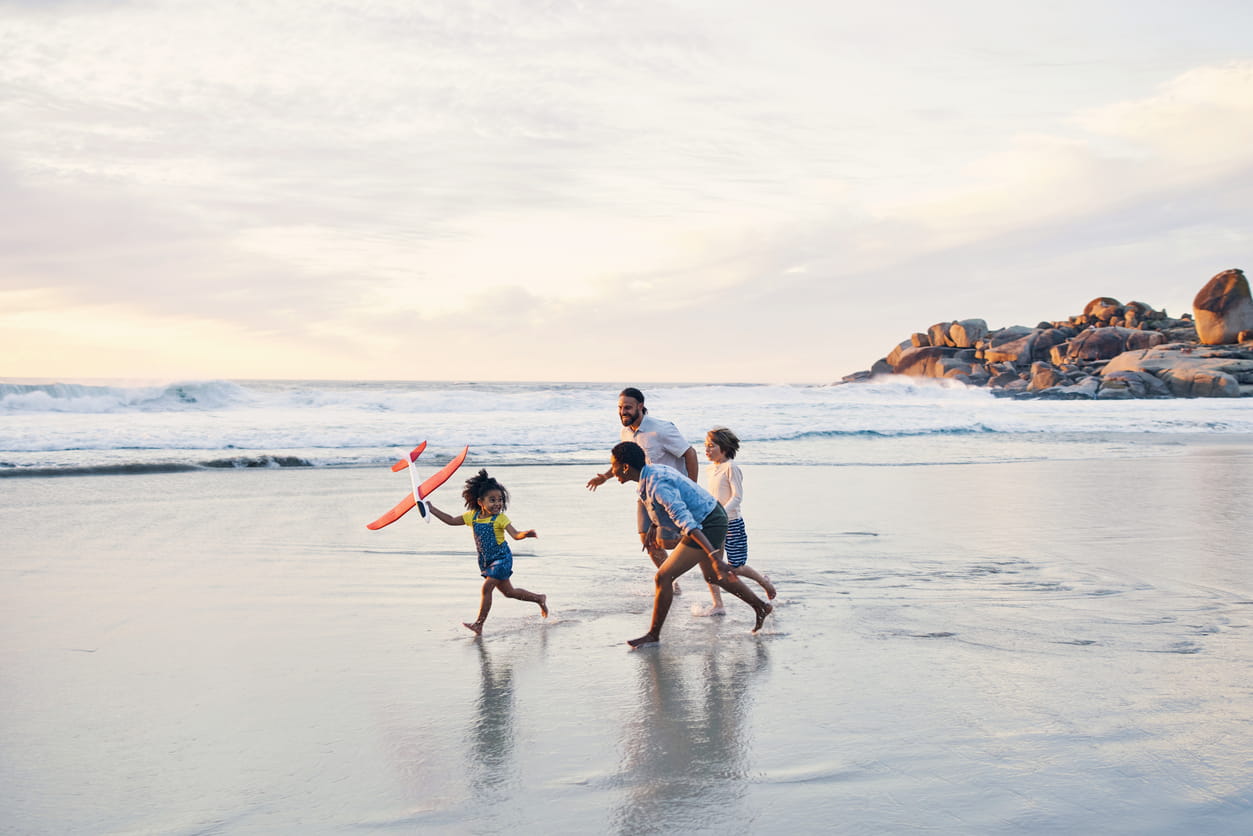Making the most of vacations with young kids

Planning a family vacation can feel like a daunting task, especially when young children are involved. Between packing the essentials and keeping young children entertained, it's easy to feel overwhelmed. However, with a few family vacation tips up your sleeve, you can ensure a smooth, enjoyable experience for everyone.
Planning is your best friend
With a bit of foresight and some strategic planning, you can transform potential chaos into an enjoyable, stress-free moments that will be cherished for years to come.
If you are travelling abroad, it’s important to make sure all recommended vaccines are up to date. You should also consult a travel medicine specialist to identify any additional vaccine needed. Make a packing checklist. Go beyond the basics of clothes and toiletries to include items that will keep your children comfortable and entertained, like their favorite snacks, water bottles to stay hydrated and a mix of toys and books. Remember to consider the climate of your destination to ensure your packing list is comprehensive and nothing vital is left behind.
"Timing your travel to coincide with your children’s routines can significantly reduce stress for everyone," says Hazel Guinto, MD, system chair of pediatrics at Main Line Health, and medical director of pediatric emergency medicine at Bryn Mawr Hospital. "If you can, schedule flights or drives during nap times or when your little ones are typically more relaxed and likely to sleep.
Safety tips for staying together
Embrace the buddy system. It's a simple yet profoundly effective method to ensure no one strays too far. In crowded or unfamiliar environments, holding hands or staying within arm's reach can provide immediate peace of mind. This approach not only fosters a sense of security but also strengthens family bonds through shared exploration and discovery.
Dressing your children with brightly colored attire helps in maintaining visibility. Choose neon or other vivid hues that stand out, making it easy to keep visual tabs on your adventurers at all times. Also consider accessorizing them with something unique and easily recognizable from a distance.
"Preparation extends to ensuring your children carry your contact information in a secure but accessible manner," says Dr. Guinto. Teaching your children to identify and approach uniformed personnel or another family for help can further bolster their safety net.
Designate a familiar, easily identifiable meeting place. Whether it's a towering landmark or the entrance to a specific attraction, having a predetermined rendezvous point simplifies regrouping efforts and alleviates potential stress.
Above all, maintaining a constant vigil over your children without stifling their sense of adventure strikes the perfect balance between safety and fun. Open channels of communication, ensuring they feel comfortable expressing if they feel lost or uneasy at any point. Your presence, both physical and emotional, forms the bedrock of their safety.
Preventive measures to take
It is important to stay hydrated, especially if your vacation involves outdoor activities or destinations with warmer climates. Encourage your kids to carry a water bottle and take regular sips throughout the day. Similarly, the importance of regular sunscreen application cannot be overstated. Make it a fun, routine activity by involving your kids in applying sunscreen to themselves and each other, turning it into a game rather than a chore.
While it's natural to want to experience everything your vacation spot has to offer, avoid the urge to overfill your itinerary. Children can become overwhelmed and fatigued with a packed schedule, leading to unnecessary stress for the whole family. Instead, choose a few must-do activities and leave ample time for rest and impromptu fun. This approach allows for a more relaxed pace, where both you and your kids can truly enjoy each experience without feeling rushed from one attraction to the next.
"Another vital measure is familiarizing yourself with the health care facilities in the area you're visiting. Before you travel, take a moment to research and note down the nearest hospital or urgent care center to where you are staying," says Dr. Guinto. It is also a good idea to carry your health insurance card as well as the names and phone numbers for your family members’ healthcare providers.
This preparation ensures that, should a medical need arise, you know exactly where to go without losing precious time searching for information. Ensure your travel kit includes a basic first-aid kit. This should have essentials to handle minor injuries — think antiseptics, band-aids and any specific medication your family might need. Also, keeping your phone charged and ready with important local emergency contacts pre-saved allows you to act swiftly, providing you with a direct line to professional assistance when needed.
Preparation is your ally in these scenarios. By familiarizing yourself with the steps to take and maintaining a resourceful mindset, you can navigate through emergencies with confidence. This proactive approach ensures that, even in the face of the unexpected, you're equipped to protect and provide for your family, ensuring that your vacation memories remain positive and that every experience contributes to the adventure.
Next steps:
Meet Hazel Guinto, MD
Learn more about pediatric care at Main Line Health
A step-by-step guide to bike and skateboard safety